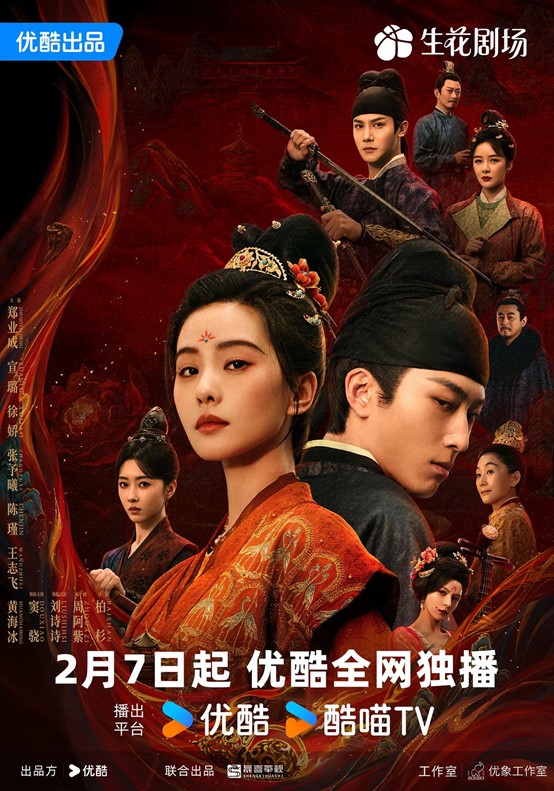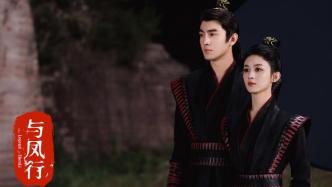
Before "Walking with the Phoenix", director Deng Ke's last hit drama was "The Son-in-law". He is good at finding innovative points in the costume genre, adding a unique light comedy style, and putting his own creative mark on it. I took on the project "Walking with the Phoenix" because the script was innovative.
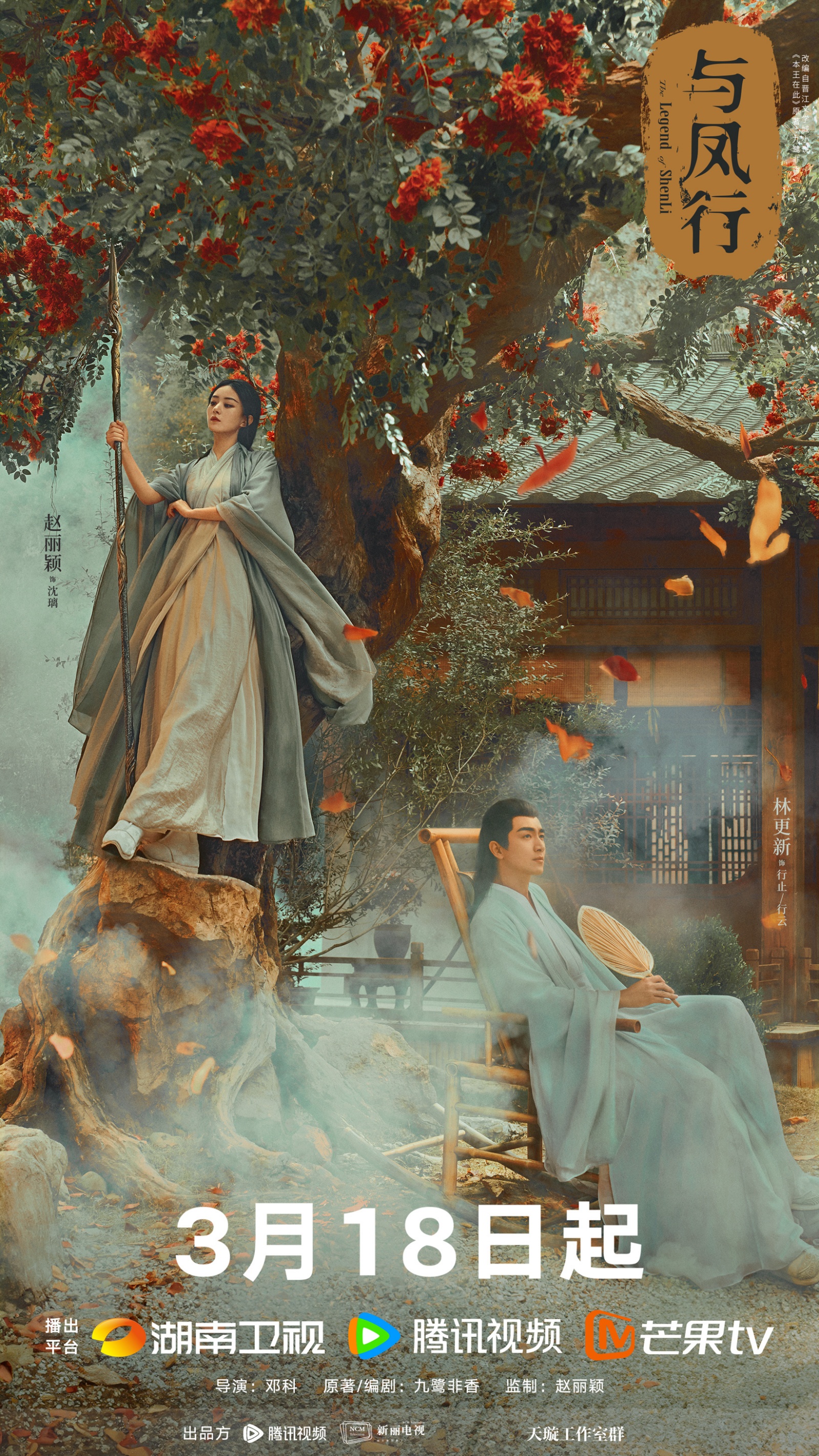
"Walking with the Phoenix" poster
"From the beginning, I didn't treat it as a fairy tale fantasy." Deng Ke said, "The author Jiu Lu Feixiang, her works have the perspective of today's young people."
Deng Ke feels that "Traveling with Feng" is very much like a contemporary story: a strong working woman mistakenly enters a slow life in the countryside and develops feelings for a man, but later she returns to her own life and work very sensibly. . When she met a man again, she gradually learned not to put too much responsibility on herself and to enjoy the moment.
"At that time, I felt that the core of this story was very contemporary and young, and it would be very healing and relaxing to watch it. The first 6 episodes of the series were filmed in a small courtyard, and there was no beating at the beginning like traditional fairy tale dramas. Killing, killing, all kinds of fate in the three realms, but a 'pastoral slow life', this makes me very creative."
The first six episodes of this pastoral and slow lifestyle are rare in costume dramas in the current market. Deng Ke said bluntly: "When our team read it, they made an intuitive judgment: the taste presented by this text is good. How many of us Among the core creators, including Liying, we all feel that maintaining the original flavor of this novel is the most important thing. We hope that the audience can feel its stretch and specialness."
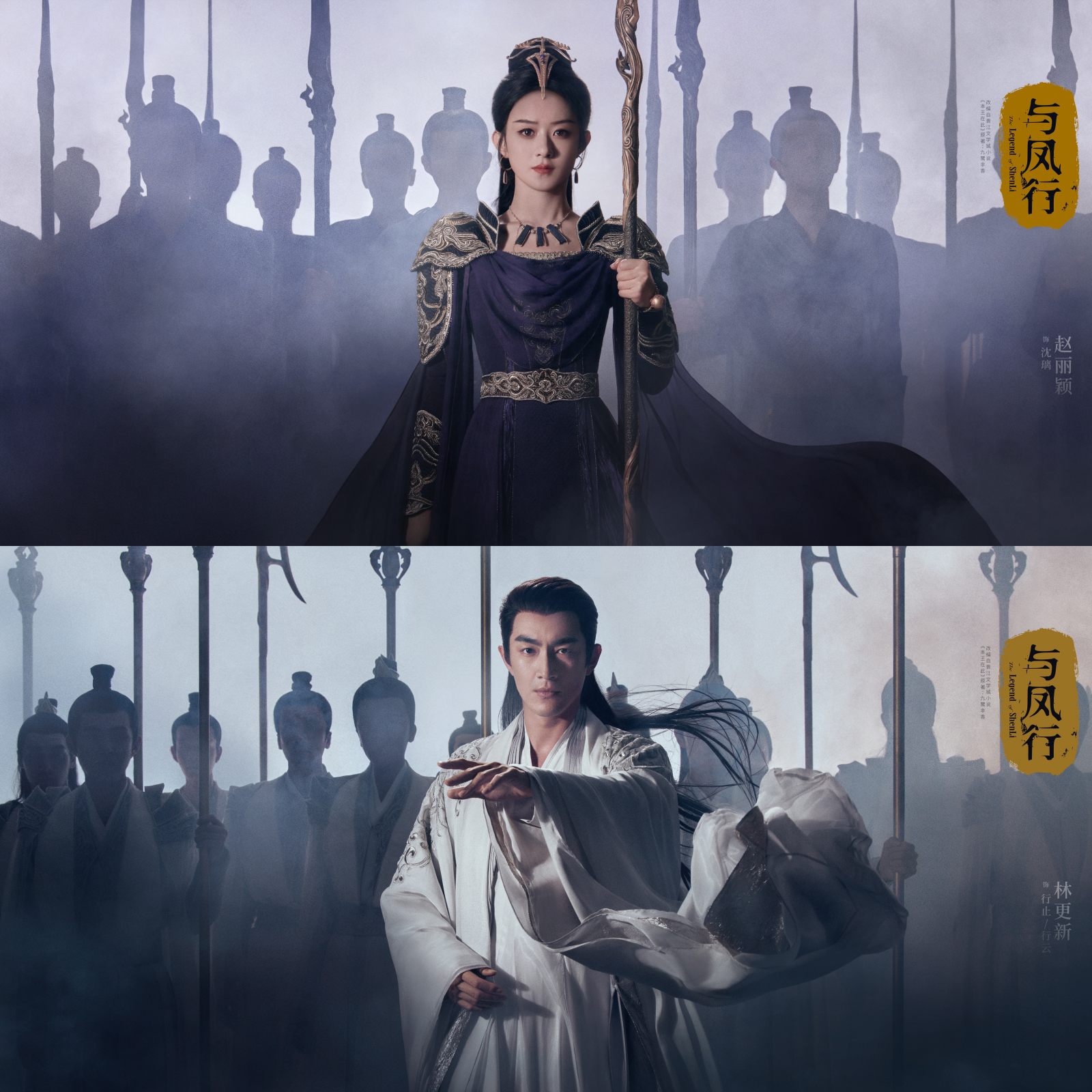
"Walking with the Phoenix" poster
At the very beginning, Deng Ke positioned "Traveling with Phoenix" as "a story that tells people." "The advancement of this drama mainly relies on the emotional changes of the characters. When you have emotionally identified with these characters, They are like your friends and it’s hard to let them go.”
This time, Zhao Liying not only stars in "Hong Kong Phoenix", but also takes on the role of producer of a TV series for the first time. Deng Ke said that Zhao Liying confirmed her participation at a very early stage, which was "very practical" for the creative team. In his practice and observation, many times, projects on the market are suddenly finalized due to actors' schedules. The entire team has to rush to make progress, and quality is naturally difficult to guarantee. But "Traveling with the Phoenix" took a year and a half to prepare. "In the early stages of filming, producer Zheng Zhongli, myself, and Zhao Liying had a lot of discussions together and set the tone and direction of the project."
Working with Zhao Liying, Deng Ke said that she is "as excellent as ever and as dedicated as everyone says." Deng Ke and Zhao Liying are the same age. "Our communication will be more direct. When two people talk about creation, it is like chatting. I think it is best for directors and actors to form such a state of communication. If we, directors and actors, are communicating We also have to consider the wording and the other party's emotions, and the communication will not be so direct and efficient. But she entered this project early. We have been working together for more than a year in the early stage. When we entered the shooting, we were already very familiar and talked about everything. "
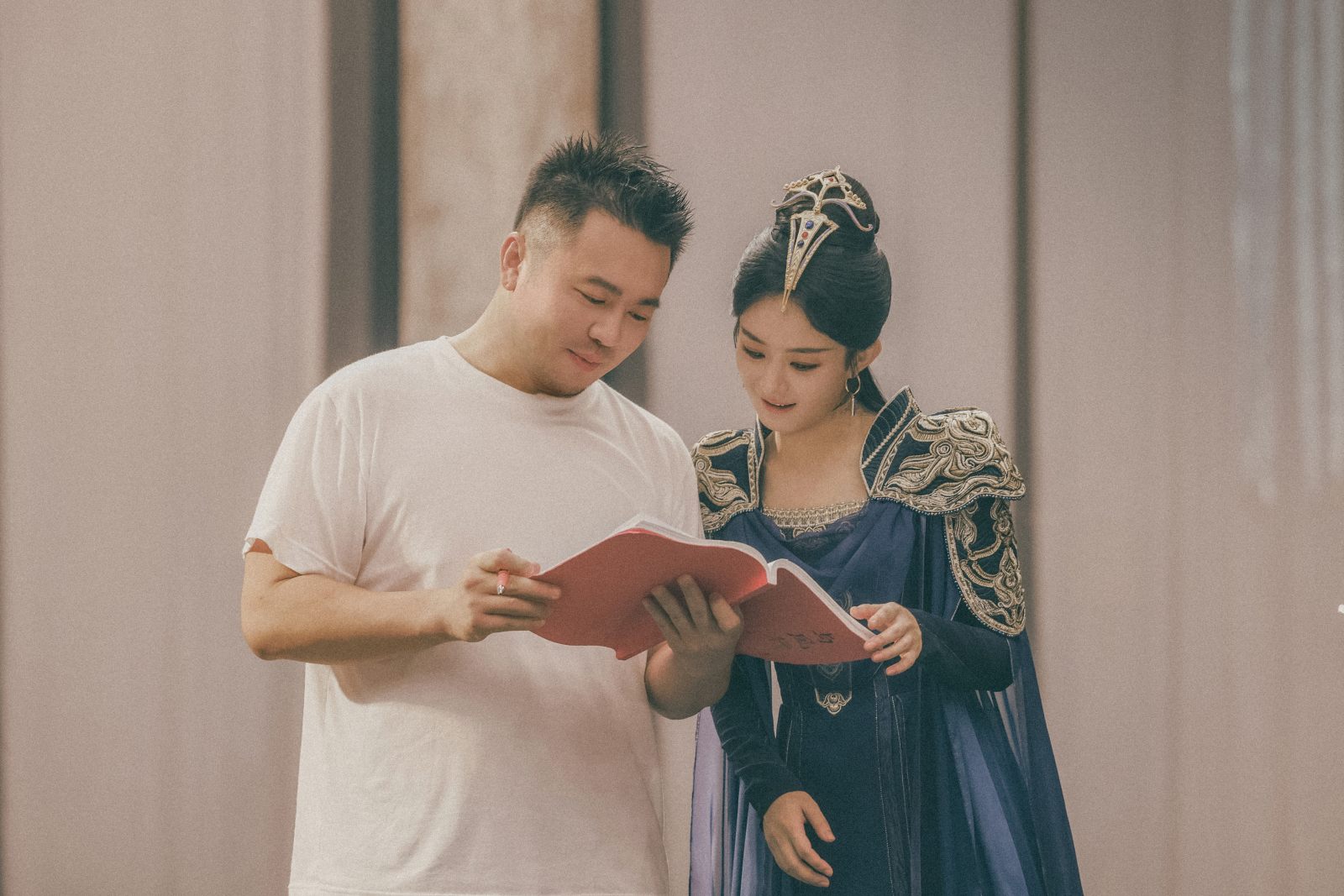
"Walking with the Phoenix" directors Deng Ke (left) and Zhao Liying on the set
In Deng Ke's observation, Zhao Liying is already a mature actor with her own style. To stimulate a mature actor to give a brand new performance, she must "give her something new." "She is a feeling actor. After you change the lighting, camera position and even the scheduling, she can capture it instantly and she is in good condition." For example, the "tank throwing" plot that has been hotly discussed in the past few episodes is Deng Ke. After trying out the new design that was thrown out at the scene, Zhao Liying and Lin Gengxin laughed at the scene and both thought it was very good. This laugh point, in the plot, later became the tear point in the memory killing.
Deng Ke dabbles in a wide range of subjects on a daily basis and likes to experiment. Animation, music, movies, and even short videos can all become sources of inspiration for his creations. In "Walking with the Phoenix", he also guest-starred as a hawker selling "Phoenix" in the first episode. "As soon as I read the script, I thought this hawker was quite interesting, and I was selfish at the time. The assistant director mentioned it to me. When there were many candidates, I kept giving him winks, and finally I said I must find someone who is a 'heavyweight'. Who did he say? I said: me."
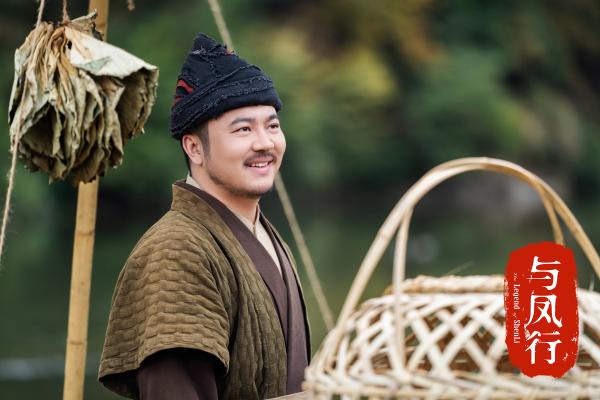
Stills from "Walking with the Phoenix"
From this guest appearance, he felt the difficulty of being an actor: being exposed to everyone's eyes and spotlight, and being extremely sensitive and vulnerable inside. This gave him new thoughts on how to protect actors' performance creations. Similarly, in his view, the director behind the scenes is actually "exposed" to the audience all the time: as small as the color of a suit of clothes, as big as how to arrange a scene, every choice the director makes will expose himself. "You can't hide yourself. Only if you are an interesting and curious person can the world you create be liked by others."
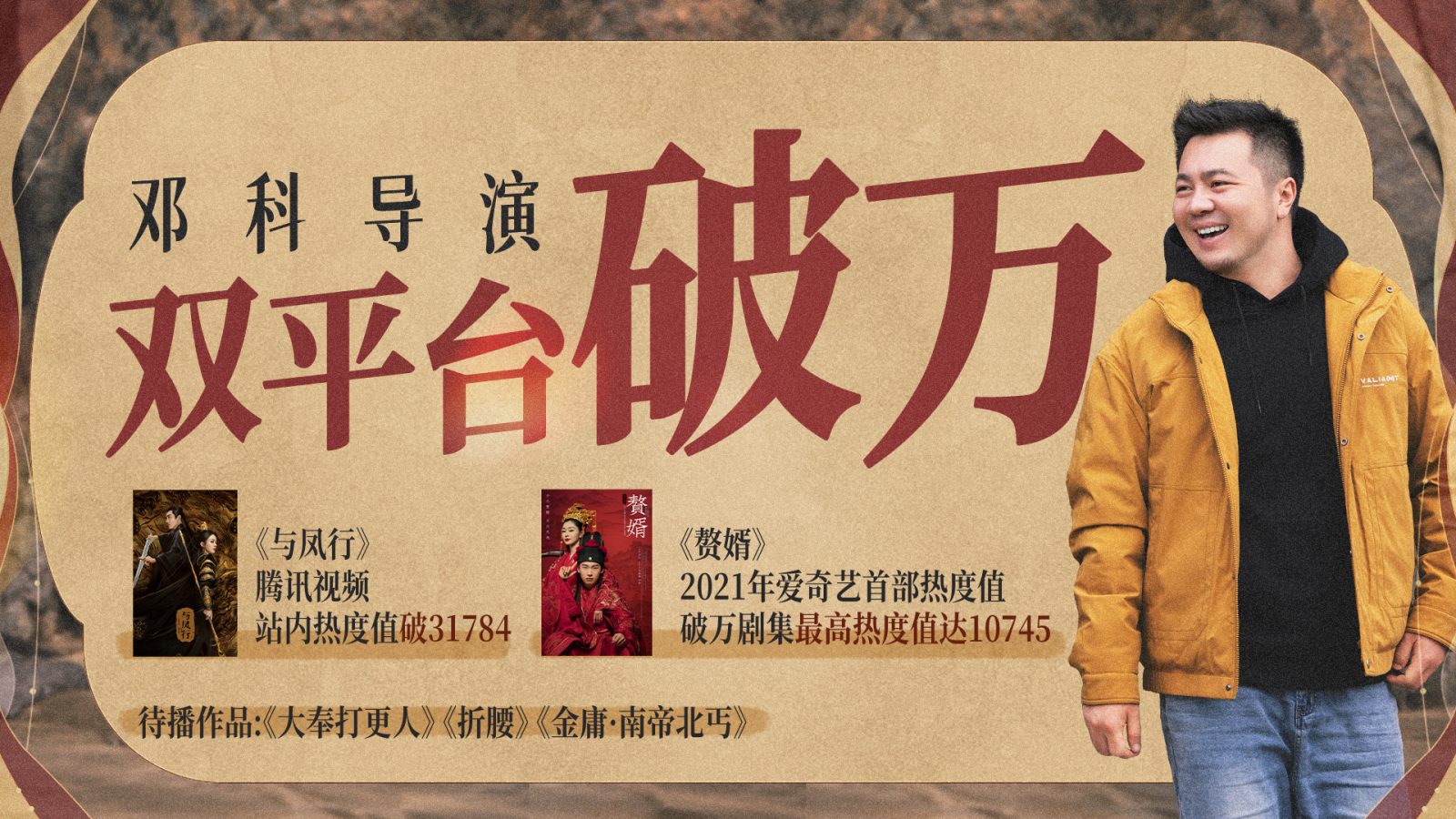
Deng Ke became a dual-platform director with more than 10,000 thanks to "The Son-in-law" and "Traveling with the Phoenix"
【dialogue】
The unique flavor of the work
The Paper: How did you find the direction for the aesthetic style and audiovisual aspects of "Traveling with the Phoenix" in the early stage?
Deng Ke: I always hope that every work I make has some unique flavor of its own. The preparation for "Walking with the Phoenix" took a long time, and Zhao Liying confirmed her participation in the starring role very early. This is very practical for our creative team. We have as long as a year and a half to discuss and collide with her many times, including Make some preparations for scripts and transformations based on the actors' own characteristics.
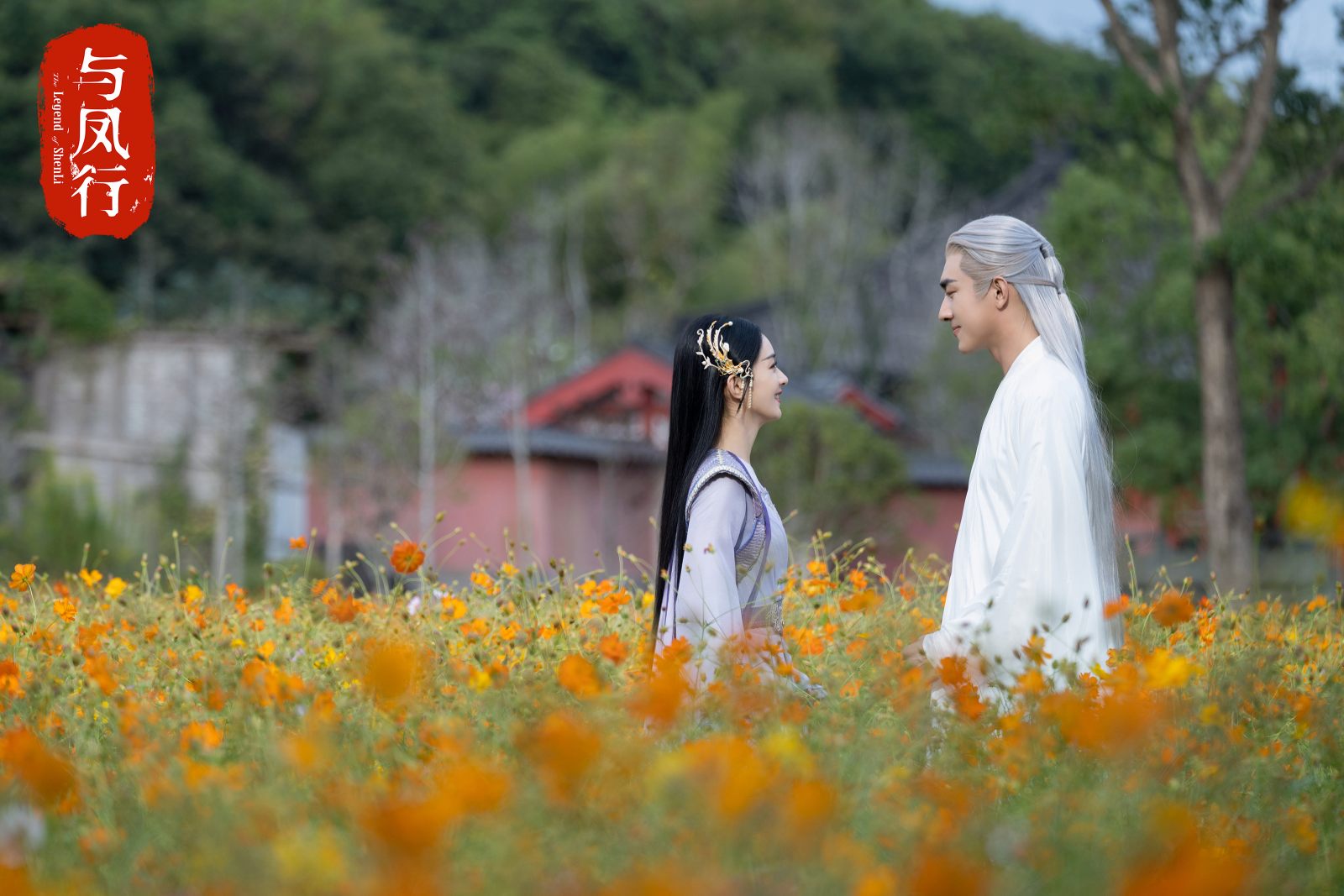
Stills from "Walking with the Phoenix"
First, I gave a very detailed director's explanation, which was about 500 pages. All main scenes and world views are divided into styles. Like the human world, the key word we gave to the human world is "quiet years and good times". At that time, we found some reference pictures. The pastoral atmosphere, mottled tree shadows, small rivers and streams highlighted the sense of sunshine and the feeling of Jiangnan water town. Then I asked the music teacher to make a melodious piece of music first. Once the pictures and music are available, basically the chief creatives of each department will know what the style of the Xingyun Courtyard should be.
The spiritual world is the heroine’s home and a very lively place, so we think it should be a bit like Hongya Cave in Chongqing, with layered topographic structures. In terms of aesthetics, we also referenced Dunhuang. So now I see that the heroine’s clothing and accessories, including the colors in the spiritual world, actually have a Dunhuang flavor.
We are sure that the Fairyland has a Taoist cultural feel. There are many cranes and pine trees in the imagery. The entire Fairyland has huge buildings, vast territory and inaccessible people. We are joking to ourselves. The Fairyland is a villa area with a high floor area ratio, and the spiritual world is full of fireworks. A dense living community.
The Paper: In my previous interview with teacher Yang Bingyin , I mentioned that you are a very new director who has high requirements for music. Can you tell us about the process of music creation?
Deng Ke: I have always felt that music is particularly important. It can sometimes give the audience an intuitive feeling before the picture. A long time ago, I determined that King Bicang must have a war song that represents her character and spirit. I also made it clear that I wanted to use suona. The penetrating power of suona is difficult to match with many musical instruments. When looking for a music team, I also want to find a team that is relatively young and unconventional. I happened to watch an animated series at that time, and was deeply impressed by one of the songs, "Maikala", so I contacted the author Yang Bingyin, who was the creative force behind the first invitation to "Walking with the Phoenix".
Generally speaking, we only find the music production team after the filming is completed, but we approached Mr. Yang in the early stage and held many meetings with him, asking him to put some more important music, such as "The Battle Hymn of Blue Blue". Seed and make it first. When shooting on location, I can play the music. With the music as the emotional foreshadowing, all the main creators can better understand what kind of feeling we want.
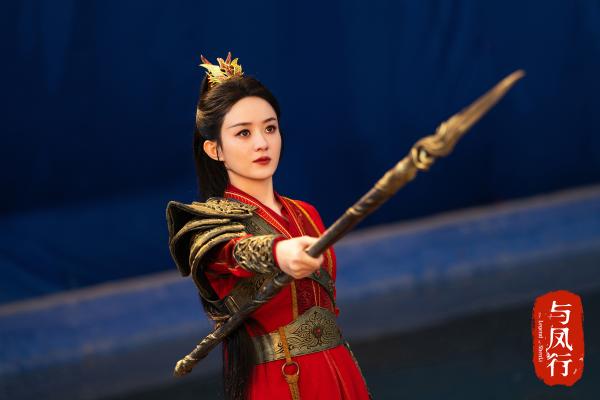
Stills from "Walking with the Phoenix"
Xianxia dramas are not like urban dramas or traditional puppet dramas. Those types of dramas tell a general story, and the audience can have a specific and relatively unified imagination of its temperament and environment. But Xianxia, what do you think the palace of the gods is like, and what the sky is like? Everyone understands it differently and presents it differently in their minds. And I need to frame the imagination of each creative staff within a relatively unified scope to create. Music is the best way to express emotions and feelings. If I play music to the creative staff on the spot, they will be moved by that kind of compassion or compassion. Passionate emotions must be reflected in their creations.
"Baymax" style director
The Paper: How to guide actors to give good performances is a task for every director. What type of director are you in this regard?
Deng Ke: An actor once commented on me. He said that he was particularly willing to try and make mistakes in my crew. He said that I was the kind of "Baymax" (character in "Big Hero") director who would give actors safety. feel. That is, I may not explicitly ask the actors: What direction are we going to go in. I'm used to standing behind the actors, discussing with them, not going in the wrong general direction, and we'll walk the rest together.
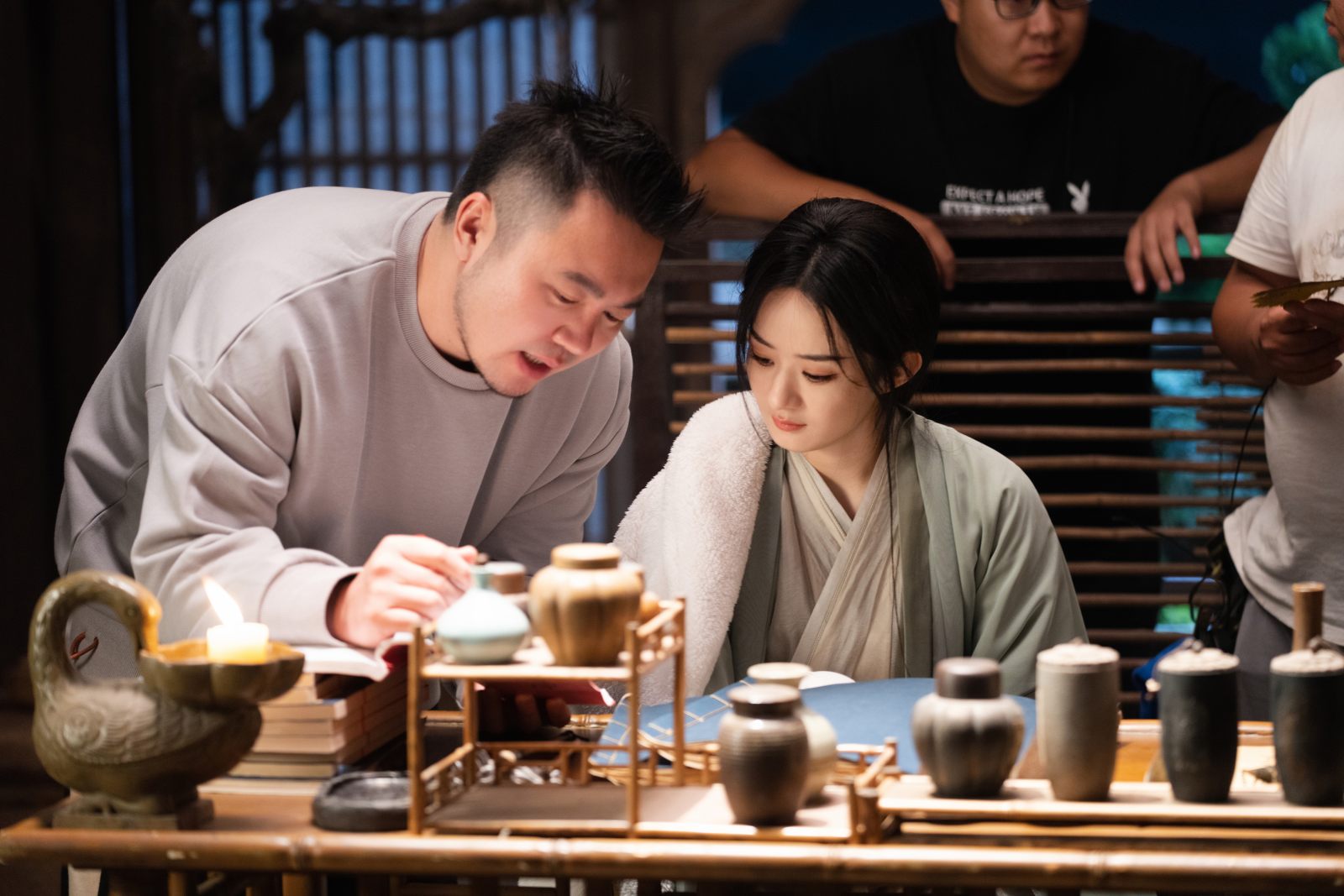
"Walking with the Phoenix" directors Deng Ke (left) and Zhao Liying on the set
In fact, actors are very fragile. Think about it, the spotlight is shining on your eyes, and a crowd of people are gathered around the scene looking at you. You can feel their breath, but you can't see their expressions clearly. They are staring at you, maybe judging you in their hearts. , at this time, you may catch a micro-expression of a staff member, and you will be shocked. The negative working environment and feedback from others will cause the actor to have a stress reaction. So at this moment, actors need a strong sense of belief.
When an actor performs, there must be his (or her) safest way of performing: making no mistakes and still completing the task. But if you want them to try something new, such as acting more exaggerated or hysterical, you need to give them a safe and positive creative environment. I am used to letting the actors in my crew try whatever they want, letting them try out their performances without any burden. We may not know how it will feel in the end, and this creative unknown is what excites me the most.
Of course, maybe in the past few years, the types of projects I have taken on are also suitable for this method of creation. They are all market-oriented works that are light comedies/costume dramas. As long as the actors can present a more relaxed and natural state, then it is right. But if on the contrary, for example, I go to film a suspense drama, then I have to change the way I create it.
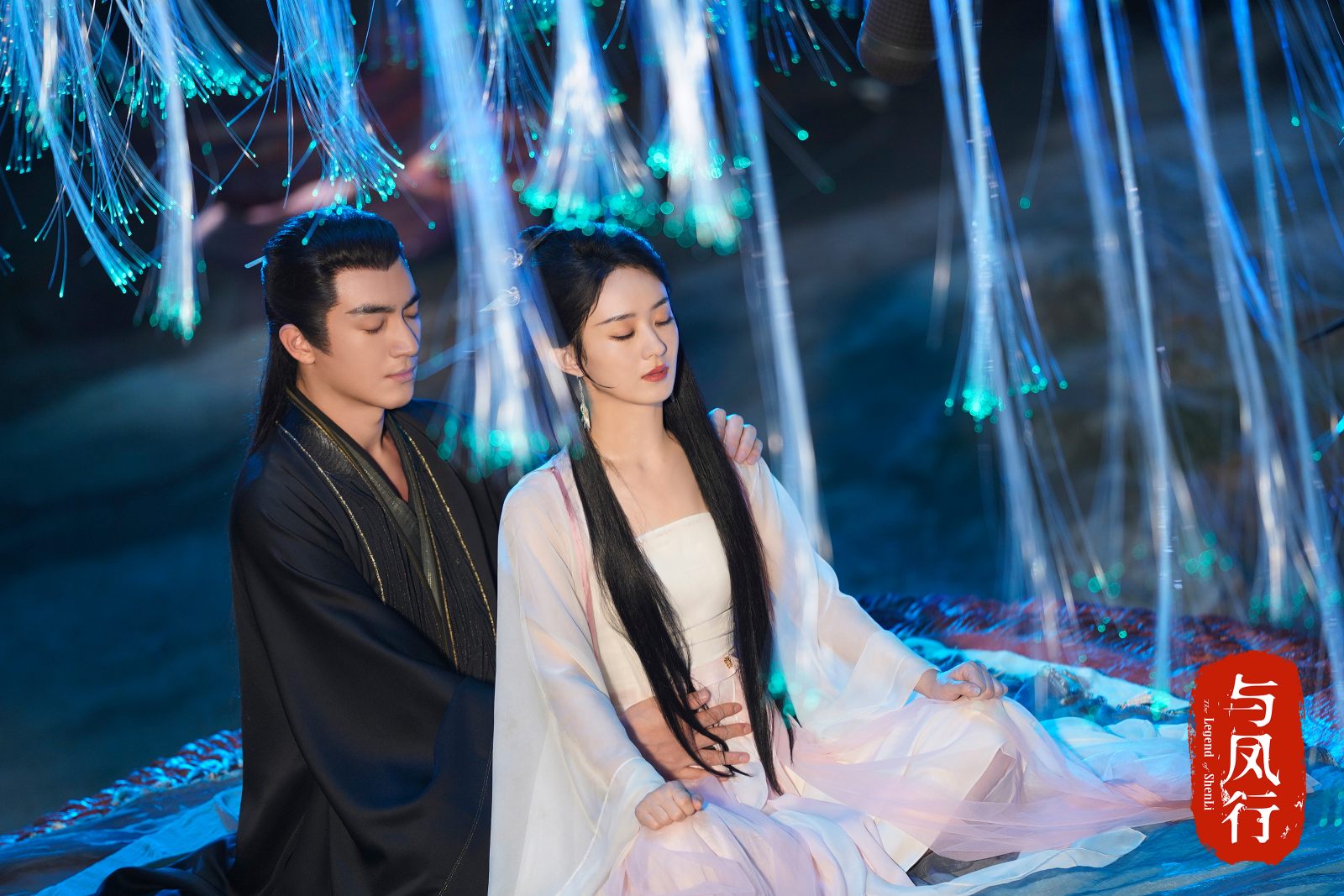
Stills from "Walking with the Phoenix"
The Paper: It feels like you, as a director, play the role of an atmosphere creator on set.
Deng Ke: Yes, it is actually very important to put everyone in a working state and mood.
The Paper: What was the biggest challenge you faced in the creation of "Traveling with the Phoenix"?
Deng Ke: Special effects. Judging from the results, everyone now feels that the special effects are pretty good. However, the production of "Walking with the Phoenix" involved more than 20,000 special effects shots, which were completed by more than a dozen special effects companies. This also involved how to manage these materials by category and team management issues. How do you manage more than ten companies with different styles, different schedules, and different working locations to complete the same project? So we did take some detours at that time, but we also learned a lot of experience. When the final series was released, I saw all the special effects. When I saw all the complete effects and scenes put together, I had tears in my eyes: after watching it in various forms countless times. , finally saw it in its complete state for once.
I feel that as a professional director, special effects cannot be escaped. I am very lucky to be able to experience the entire special effects process through "Walking with the Phoenix" this time.
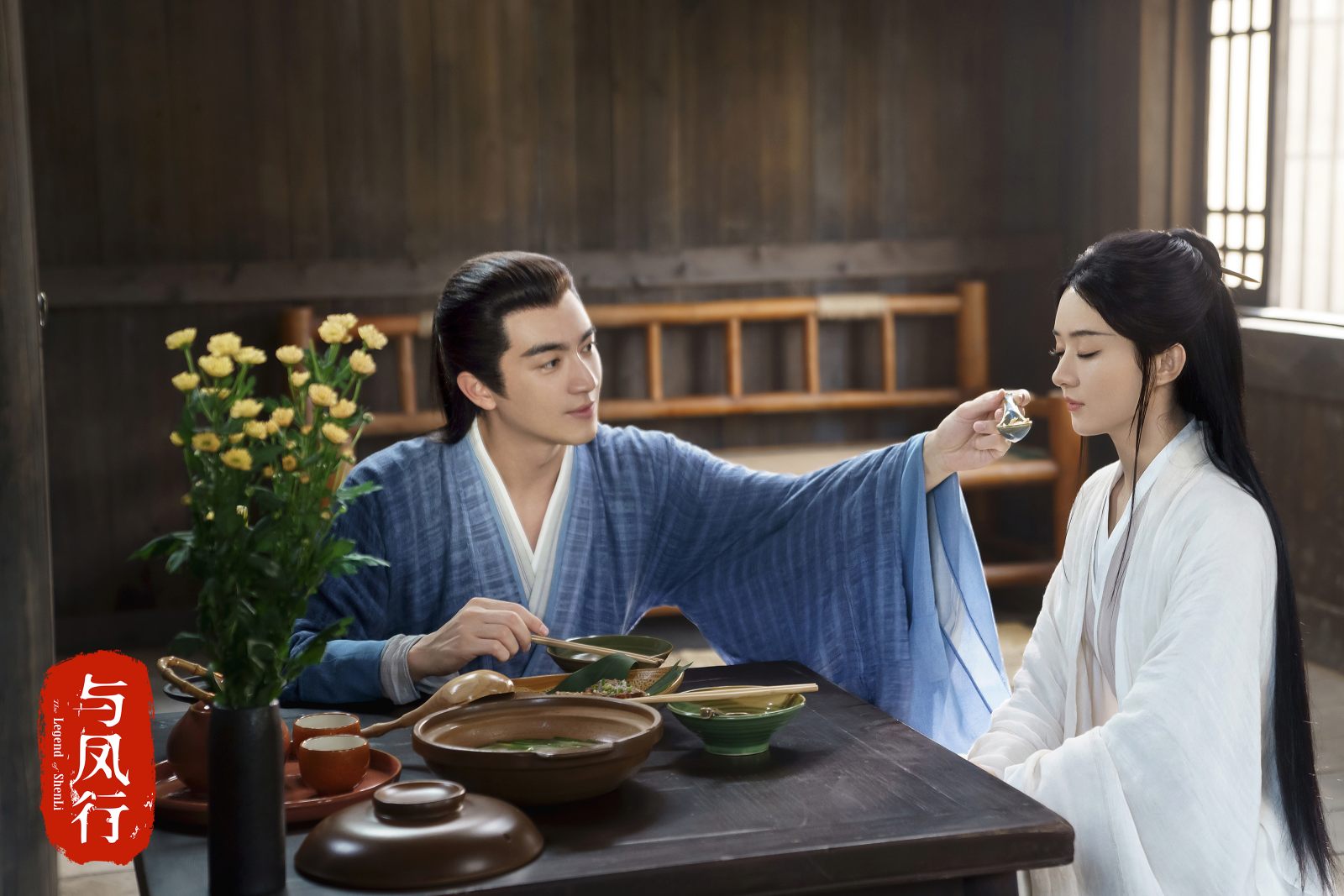
Stills from "Walking with the Phoenix"
"You can't hide yourself"
The Paper: Last time when you were working on "The Son-in-Law", we talked about how your comedy experience helped your creation. I would like to continue talking about my practice and thoughts on comedy creation in "Traveling with the Phoenix" this time.
Deng Ke: I think comedy is very personal, such as suspense or thriller. It has some rules and routines that you can use over and over again, but comedy is too dependent on individuals. Therefore, every time we do a different project, the presentation of the comedy part must be customized according to the actors. For example, what is Lin Gengxin’s comedy style, what is Zhao Liying’s comedy style, and what is the combination of the two? What effect will it have.
This time, our overall positioning of "Traveling with the Phoenix" is a light cold humor, not relying on two actors to shake off the burden of being clever, but the kind of joke and tacit understanding between familiar people. The two actors are excellent and mature enough. After we unified the comedy direction, they were able to quickly give the best in this atmosphere. In terms of music, I also asked teacher Yang Bingyin to give a lively music to enhance the sense of comedy.
The Paper: How does content from various media forms such as animation, film, and short videos help you create?
Deng Ke: Like everyone else, I occasionally use Douyin until two or three o'clock. I also like to go to the "square" to see everyone's feedback. The surfing speed may be "8G" (laughs). I hope to be closer to the audience. I am also a person who likes to live a down-to-earth life. I think the director must cover a wide range of topics and understand everything, as this will help his creation.
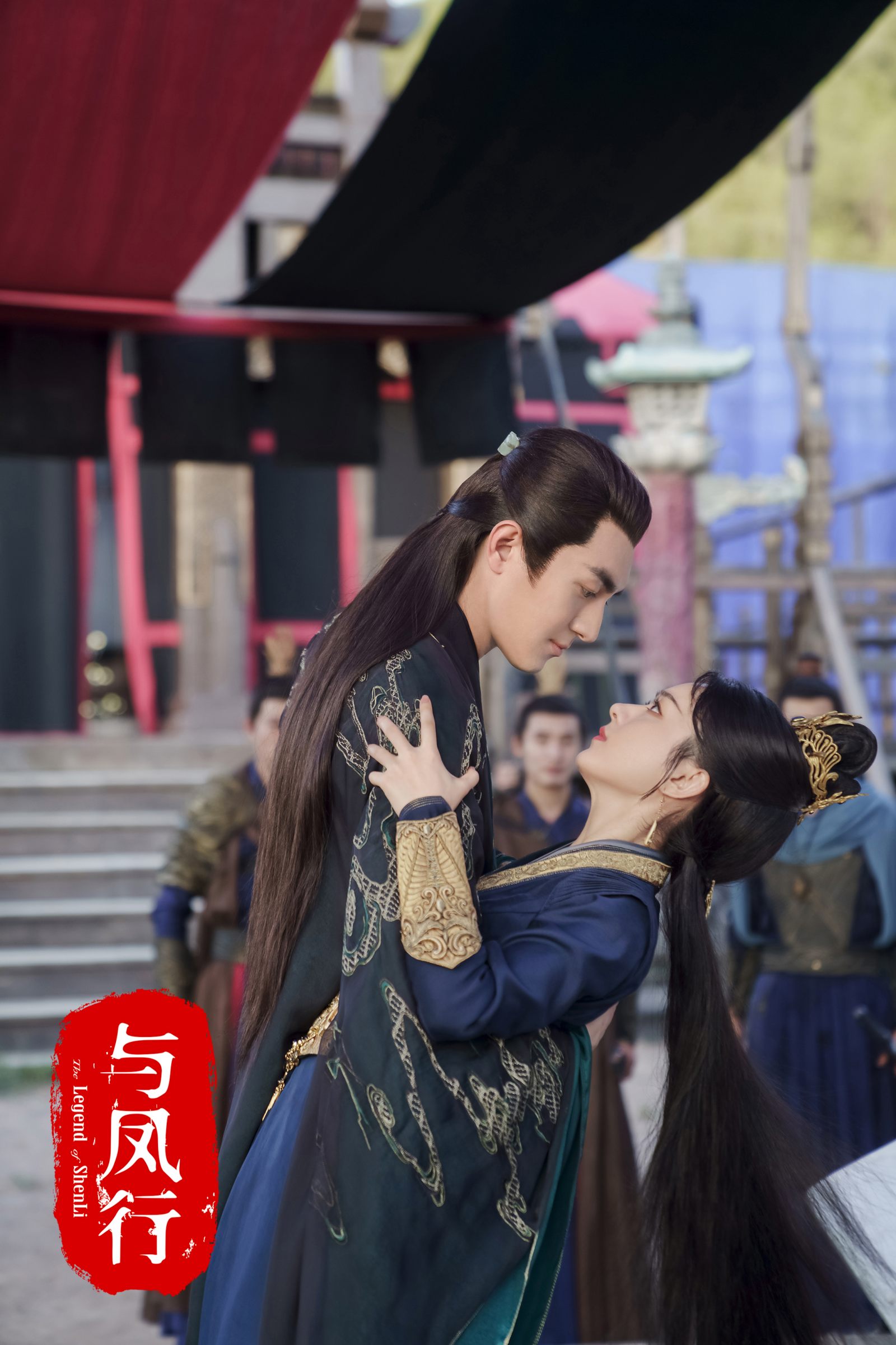
Stills from "Walking with the Phoenix"
The Paper: Many directors of long-form dramas have a repulsive attitude towards short videos, but you don’t seem to be at all?
Deng Ke: Yes, after you understand the good and bad aspects of many things, there is no need to resist them. Directors of our generation have experienced many changes in media and content formats. Black and white TV, color TV, VCD, DVD, online videos, online dramas... Now is the era of short videos. Including the development of AI, it is bound to change the way we create in the future. What we have to do is not to remain complacent, but to adapt to integration.
The Paper: Speaking of AI, how do you think it will change the film and television industry?
Deng Ke: In the near future, maybe it’s about changing your work habits and providing some help to Fu Huadao? From afar, I sometimes imagine a possibility. I think future directors will be more like world creators: creating a world that allows you not just to see a picture, but to enter it and be immersed in it. To feel. Sometimes I even wonder, is our world also an experiment by "directors" from creatures in another dimension?
In the face of AI, we still have to remain interesting, creative and curious. Maybe technology will be replaced by AI, but if you are a unique and interesting person, I don’t think you will be replaced so easily. I also talked with my friends that it may take two or three years for a director to make a film. During this process, you have to make tens of thousands of decisions, ranging from what color to use for a set of clothes, to how to schedule a scene, and how to plan a project. Set the tone. Every choice you make will expose your own characteristics. You can't hide yourself. Only if you are an interesting and curious person, will the world you create be liked by others.

